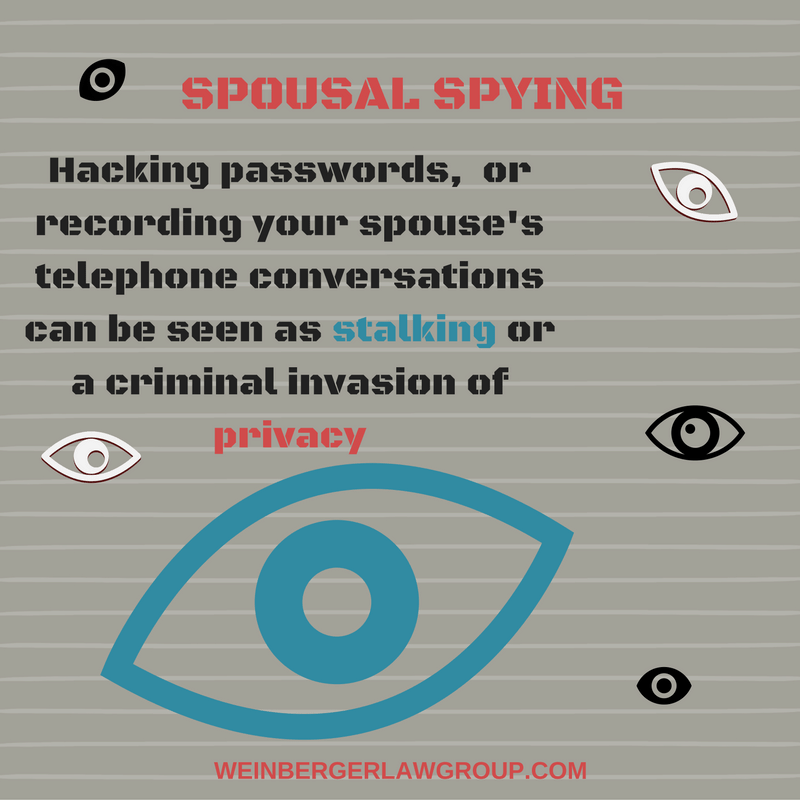Spousal Spying—Are You at Risk?
 It is hard for most of us to remember a time without smartphones, email, GPS, and even drones, and virtual reality. High tech definitely seems here to stay. But, there is a dark side to all this technology, particularly in relationships that involve domestic abuse or domestic violence. Abusers can now, more easily than ever, spy on their spouses or significant others, using current technology found in computers, cellphones, hidden web cams and surveillance cameras, and GPS devices. Are you at risk for being spied on by on your spouse — and what can you do to keep yourself safe?
It is hard for most of us to remember a time without smartphones, email, GPS, and even drones, and virtual reality. High tech definitely seems here to stay. But, there is a dark side to all this technology, particularly in relationships that involve domestic abuse or domestic violence. Abusers can now, more easily than ever, spy on their spouses or significant others, using current technology found in computers, cellphones, hidden web cams and surveillance cameras, and GPS devices. Are you at risk for being spied on by on your spouse — and what can you do to keep yourself safe?
Recognizing Spying. Spying in abusive relationships can take many forms: abusive spouses may utilize tracking devices, intercept emails, and monitor texts as a means of maintaining control over their partner, or they may install keylogging spyware or use drones to follow their spouse. Why is spying so common among abusive spouses? Easy: knowing their partner’s activities and whereabouts at all times gives them a feeling of knowledge and control over their partner and the relationship.
Your rights. Being spied upon not only feels like a terrible violation, it may also be illegal in New Jersey. Hacking passwords, snooping on a work-issued computer or phone or recording your spouse’s telephone conversations with a third party can all be seen as violating the New Jersey Wiretapping and Electronic Surveillance Control Act (N.J.S.A. 2A:156A) or a criminal invasion of privacy.
Self-Protection. If you feel as though you are being spied upon, you probably are. First and foremost, if you are in a dangerous or violent situation that goes beyond spousal spying, you should leave the situation as soon as you can. If you are in an emergency situation, call 911 and get out. If leaving immediately is not feasible, take steps to ensure that you are not being monitored:
- Do not use shared computers and be sure to keep your computer out of reach.
- Change your passwords frequently, including any passwords on laptops or cellphones.
- Check in and around your vehicle for devices that may transmit your location. These devices may be under your car, in the trunk or in the glove compartment. If you are unsure what a device is, bring your car to a trusted auto mechanic to have it examined.
- Monitor your cell phone’s data usage. Programs are now available for download that can be placed on a person’s smartphone to intercept phone numbers, text messages and emails. These programs are not immediately visible, but they do utilize a lot of data, so a sudden spike in usage may be a clue that your smartphone is being monitored.
This type of monitoring or spying can also be seen as stalking behavior, especially if you have attempted to end the relationship, but the monitoring has continued. If this is the case, seek out the advice of a family law attorney who can guide you regarding obtaining a temporary restraining order against the person stalking you.
Be sure that you plan for safety. Be sure to maintain as safe a space for you and your children as possible.
Advocates at the National Domestic Violence Hotline have been trained on technology issues, and can discuss options and help you in your safety planning. Local hotline advocates can also help you plan for safety. The National DV Hotline is 1-800-799-7233 or TTY 800-787-3224.
When you are ready, please contact us to speak with one of our qualified and compassionate attorneys who can advise you on restraining orders and domestic violence laws here in New Jersey. Our consultations are always confidential.
Read More:
Spousal Cyber Spying: Are You At Risk?



